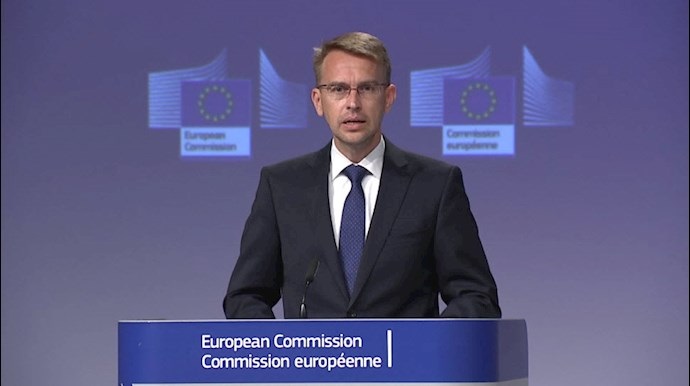Supreme Court justices' appointments go against April 19 Agreement, EU spokesperson says
The Georgian Parliament
endorsed six Supreme Court judges on Monday, despite calls by the European Union to pause and revise the appointment process to bring it in line with European standards,
said Lead Spokesperson for Foreign Affairs and Security Policy, Peter Stano.
The OSCE Office for Democratic Institutions and Human Rights (ODIHR) recently expressed concerns over the fairness and equality of the nomination process in its interim report, noted Stano.
“The appointments go against key provisions of the April 19 Agreement to pause all ongoing appointments, comply fully with all recommendations made by the Venice Commission, and overall to increase the independence, accountability and quality of the justice system in a broad, inclusive and cross-party reform process. Revising the selection process of Supreme Court judges in line with Venice Commission recommendations before proceeding with appointments is also a mutually agreed condition for the disbursement of the second tranche of EU macro-financial assistance to Georgia under its current programme, which could be negatively affected by this step,” the spokesperson underscored.
EU’s foreign policy spokesperson stressed the vote is a missed opportunity for the Georgian authorities to prove their commitment to genuine and comprehensive reform of the judiciary. EU spokesperson also added that these developments carry a risk of damaging judicial independence and public trust.
“The EU is open to further talks at the highest levels to discuss justice reform and the way ahead following these developments, notably in the context of the April 19 Agreement and decisions regarding EU macro-financial assistance to Georgia,” the spokesperson added.
Georgian Parliament approved six of nine Supreme Court judges on July 12.
Georgia’s Supreme Court nominations triggered backlashes from the international community, “as it took place in an environment where there is a lack of public trust in the independence of the judiciary,” OSCE’s
recent report reads.

